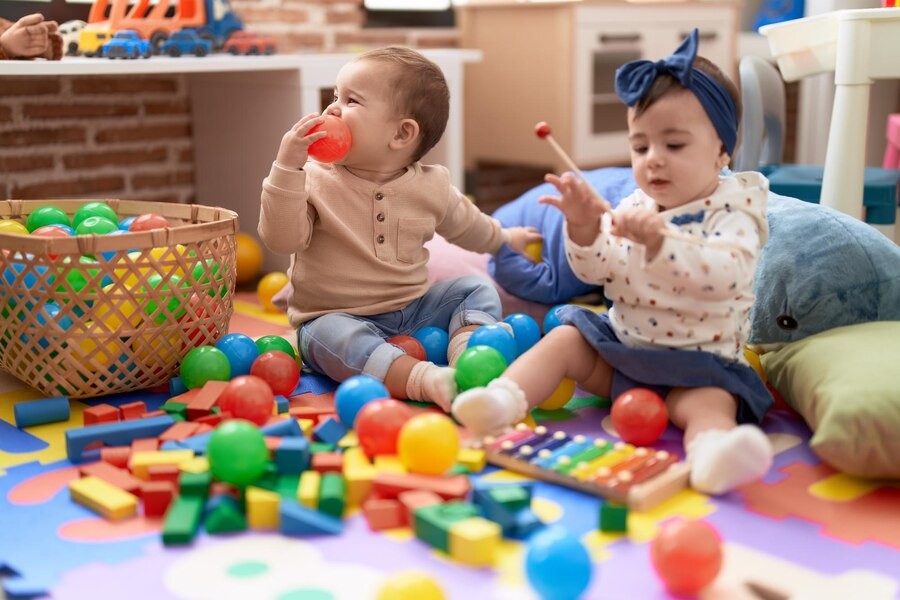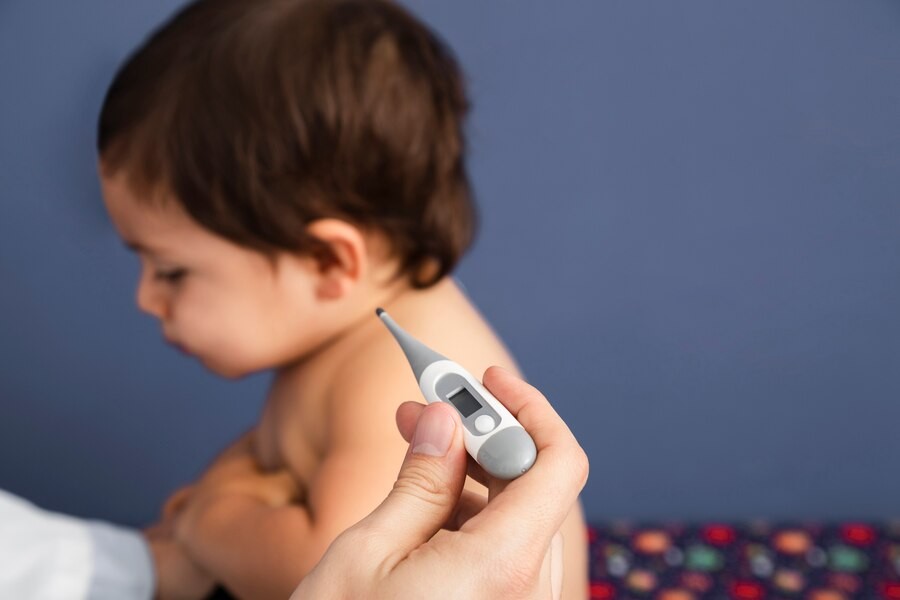It is common for babies to put objects in their mouths, and this behavior is a natural part of their development. Typically, this phase starts at around 4 months, becoming more pronounced by 6 months when babies begin putting anything they can grasp into their mouths.
This behavior is known as the oral phase. During this stage, babies are curious about their surroundings and use their mouths as a tool for exploration and self-soothing.
Risks of Putting Objects in The Mouths
While this habit is a normal developmental milestone, parents should be mindful of the potential dangers that come with it.
Risk of Choking
Babies may choke when they place objects in their mouths, particularly small items that can become lodged in the throat, obstructing the airway.
Risk of Infection
Objects that are dirty or contaminated with bacteria pose an infection risk for babies. Since their immune systems are still developing, babies are more vulnerable to germs that may be present on objects they handle.
Risk of Poisoning
Some items that babies might pick up and put in their mouths could contain toxic substances, such as paint, household cleaners, medicines, or other chemicals. Exposure to these harmful substances can be dangerous to a baby’s health.
How to Manage the Habit of Babies Putting Objects in Their Mouths
While this behavior is a typical part of a baby’s development, it’s impossible to completely prevent it. However, you can take steps to keep your baby safe during this phase:
Maintain a Clean Environment
Ensure that your baby’s surroundings are always clean. Keep small objects out of their reach and regularly clean toys and other objects they frequently touch. Wash these items with soap and warm water to remove any germs or dirt.
Offer Safe Toys
To support your baby through the oral phase, provide toys specifically designed for teething or sucking, such as teethers. These toys offer a safer alternative to random objects, helping to satisfy your baby’s need to mouth things.
Ensure that the toys are BPA-free, safe, and easy to clean.
Supervise Your Baby Closely
Always keep a close eye on your baby, particularly when they are playing and may be putting objects in their mouths. Avoid giving them toys with small parts, such as beads, which could pose a choking hazard.
Keep Dangerous Items Out of Reach
Babies are not able to distinguish between safe and hazardous items. For this reason, it’s vital to keep harmful objects, such as batteries, coins, buttons, pins, and other small items, out of their play area.
Consider installing drawer and door guards to prevent your baby from accessing dangerous areas. Additionally, use outlet covers and corner protectors to reduce the risk of injury.
An important part of helping your baby through the oral phase is scheduling a visit to the doctor when their first teeth start to appear. Consult your doctor if you have any concerns about your baby’s development. You can also access health advice through the Ai Care app, available on the App Store or Play Store.
Want more information about pregnancy, breastfeeding, and children's health? Click here!
- dr Nadia Opmalina
Kerry Weiss (2021). Why Babies Put Everything in Their Mouths. Available from: https://www.whattoexpect.com/first-year/ask-heidi/why-babies-mouth-everything.aspx
Noreen Iftikhar, MD (2020).
Baby Mouthing — AKA Why Do Babies Put Everything in Their Mouths?. Available from: https://www.healthline.com/health/baby/baby-mouthing
Judith Hudson, Ph.D. How can I stop my 2-year-old from putting everything in her mouth?. Available from: https://www.babycenter.com/child/behavior/how-can-i-stop-my-2-year-old-from-putting-everything-in-her_69314
Kendra Cherry, MSEd (2023). Freud's Stages of Human Development. Available from: https://www.verywellmind.com/freuds-stages-of-psychosexual-development-2795962
Tasmanian Governtment. What's Mouthing and its Role in Feeding. Available from: https://doh.health.tas.gov.au/healthykids/blog/whats_mouthing_and_its_role_in_feeding
Dorian Smith Garcia (2022). The 8 Best Baby Teethers. Available from: https://www.healthline.com/health/parenting/best-baby-teethers












